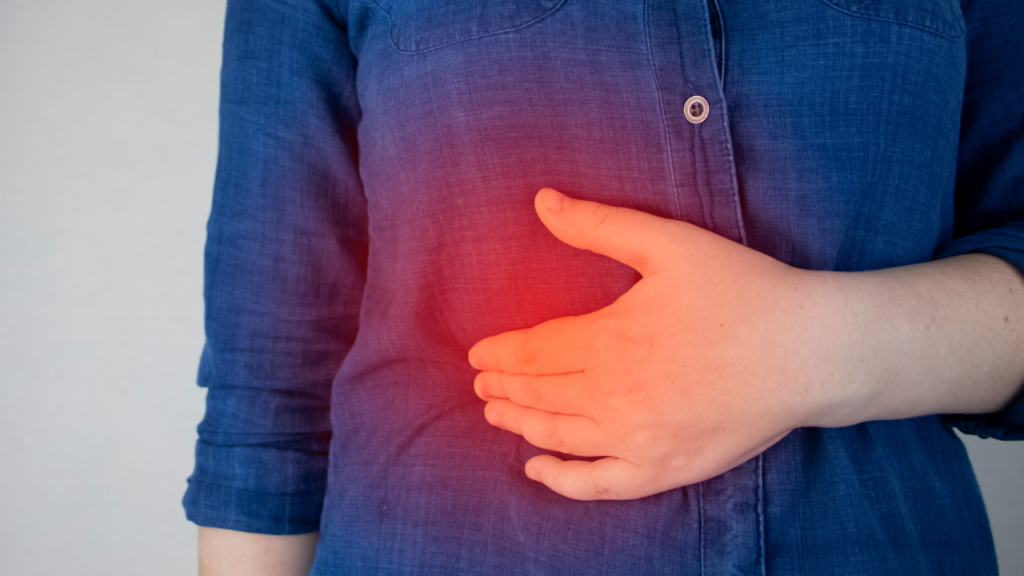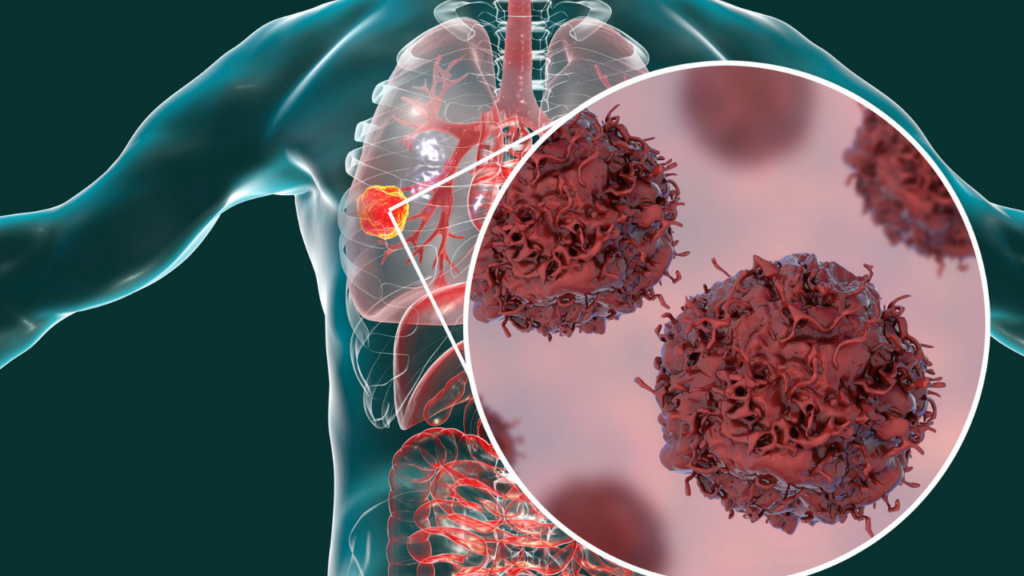Exercise Daily – Sleeping is the best thing to do when you’re tired. However, it’s not so great if you wake up with acute pain in your ribs in the morning. You’re probably wondering why do my ribs hurt when I wake up in the morning.
While taking your first step, you feel a sharp pain in your chest and ribs, and you want to burrow back into your bed as quickly as possible. Pain might subside in a matter of hours in certain cases. Other times, you may be experiencing extreme pain throughout the day, making it impossible for you to continue with your regular job duties.
The discomfort in your ribcage should not be disregarded under any circumstances. We’ll take a look at some of the most prevalent reasons for ribcage discomfort. Also on the agenda is a discussion of several potential therapies for rib cage discomfort.
Why do my ribs hurt when I wake up in the morning?
Rib cage discomfort may be frightening. It might be acute, dull, or achy. You can feel it anywhere in the chest, below the chest region, or just above the belly button. Alternatively, you might also feel it at the back of the neck.
It might happen as a result of an unexplained injury to the ribcage. From ailments that are merely bothersome, such as sleeping funny, to disorders that are life-threatening, such as lung cancer, there are many possibilities for rib pain.
Exercise that is too strenuous or heavy lifting may also cause discomfort in the ribs to develop. It might be a result of costochondritis, an inflammation of the cartilage joints that connect the ribs to the breastbone. Pain in the ribs may also be caused by issues with the digestive system.
The discomfort might continue anywhere from a few hours to a full day. If there is nothing severe going on, the discomfort will gradually decrease. However, if you have been having rib cage discomfort for an extended period of time, you should seek medical attention.
Causes of Ribs Pain
There are several probable reasons for rib cage discomfort to consider. A review of your medical history and a physical examination may assist you in determining the specific cause of your rib cage discomfort.
If you wonder why do my ribs hurt when I wake up, the following are some of the most common reasons for rib cage pain:
Injury
Ribs provide a critical function: they protect your heart, lungs, and other key organs from injury and disease. Additionally, this implies that they bear the brunt of the damage caused by trauma. This includes an accident, physical attack, a fall, sports-related injuries, or even prolonged coughing (for example, asthma).

The following are the most prevalent types of rib injuries:
- Bruising
- Broken ribs
- Pulled muscle
- Fractured ribs
It is possible that you may need to consult a doctor, who may conduct an X-Ray scan. It helps to determine whether or not you have any rib injuries. MRIs and other scans may also help to identify any tissue damage that may have occurred.
Costochondritis
Costochondritis, also known as Tritze’s syndrome, is a prevalent cause of rib cage discomfort. You may or may not have heard of it. Inflammation may develop at the junction where the breastbone joins the ribs, which is known as the costosternal joint.
The discomfort in the ribs caused by costochondritis may range from moderate to severe in intensity. Tenderness and discomfort while touching the chest region are some of the signs and symptoms of the pain.
So, next time you wonder why do my ribs hurt when I wake up, consult your doctor. It can be caused by heavy lifting, exercise, a blow to the chest, coughing, and sneezing, among other things.
An electrocardiogram (ECG) may be ordered by your doctor to rule out costochondritis. In contrast, if you have been diagnosed with costochondritis, it may take a few days for you to recover entirely.
In order to alleviate the discomfort, you may do stretching exercises, take pain relievers, or place a heating pad over your chest many times a day.
Pleurisy
Pleurisy is a disorder in which the lining of your chest cavity and of your lungs become inflamed. When the lining is in its usual form, it effortlessly slips over the other lining. The inflammation, on the other hand, leads them to rub against one other, resulting in intense agony.
In order to rule out pleurisy, your doctor may perform a series of blood tests. Most of the time, the illness will cure on its own within 2 weeks.
Lung Cancer
One of the most common symptoms of lung cancer is uncontrolled discomfort in the rib cage or chest region. It usually becomes worse when you cough or sneeze. This is one of the most dangerous signs of lung cancer, and you might why do my ribs hurt when I wake up.

Lung cancer is the second most lethal cancer, and it is the leading cause of cancer-related mortality worldwide. As a result, lung cancer generally develops in a single location and spreads over the whole lung.
This is what makes it a potentially life-threatening illness. Aside from shortness of breath and sputum production, other signs of lung cancer include wheezing and coughing up blood.
Fibromyalgia
Fibromyalgia is a kind of persistent pain that affects the whole body, including the joints. It is believed that 2 to 4% with women being the majority have been affected by fibromyalgia.
If you are suffering from fibromyalgia pain, you may feel burning, aching, throbbing, or stabbing in your chest. If the pain becomes unbearable, you may need to be admitted to the hospital.
Pulmonary embolism
Pulmonary embolism (PE) occurs when an artery leading to the lungs becomes partially or completely obstructed. A blood clot that has migrated up from one of the legs is often responsible for the obstruction.
Pulmonary embolism, in addition to causing rib cage discomfort, may induce the following symptoms:
- A feeling of being out of breath
- Respiration at a quick pace
- Hiccups
- Coughing up blood
- Anxiety
- Lightheadedness
- Sweating
- Irregular heartbeat
PE may cause damage to the lungs and other organs as a result of decreased oxygen levels in the blood. You might start thinking why do my ribs hurt when I wake up. Anyone who is experiencing the symptoms of pulmonary embolism should consult with a medical professional.
According to the National Heart, Lung, and Blood Institute, 30 percent of persons who have PE die if they do not get treatment. Fortunately, early diagnosis and treatment can help to avoid serious complications.
Symptoms of Ribs Pain
Rib discomfort is often felt in the chest, below the chest, or above the belly button. The following are some of the symptoms of rib discomfort, which vary depending on the cause:
- Breathing becomes difficult
- Pain may be reduced by taking deep breaths
- Bruising
- Sleeping is difficult
- Experiencing discomfort while doing specific actions
The pain may manifest itself in a variety of ways, including:
- Acute
- Sudden
- Persistent
- Mild or severe
- Sharp
- Dull
What to Do If You Have Rib Pain?
There are numerous strategies you may take to alleviate the discomfort caused by rib pain and other symptoms. In certain cases, seeing a doctor or other medical professional assess if drugs, physical therapy, or injections into the painful area could be beneficial is a necessary step.
Aside from medication, lifestyle adjustments and home cures are also viable possibilities.
Deep breathing exercises
If you suffer rib discomfort, deep breathing exercises may help you fill and empty your lungs more readily. It helps in increasing lung capacity. It will also help to keep your rib cage as flexible as it possibly can be.
If you ask your doctor why do my ribs hurt when I wake up, he or she might suggest deep breathing. Here’s an example of deep breathing practice you may try:
- Stand straight with your feet a few inches apart
- Stretch your arms out in front of you and your palms pointed toward the sky
- Breathe in and move your arms outward into a “U” shape. Make them end up parallel to your body
- Hold this position and your breath for a few moments
- Breathe out, bringing your arms back in front of you, palms facing up.
If you have Asthma, you may try some of the various deep breathing techniques that are available. Inquire with your doctor or another professional, such as a physical therapist, about other treatment options.
Regular exercise
Maintaining your physical activity helps your body remain agile and flexible. It may also help to improve good posture, which can help to alleviate the symptoms of rib cage pain.
Swimming and biking are workouts that you may wish to attempt since they are low-impact. Swimming may also assist you in taking deep breaths, which may help to relieve chest or rib discomfort. Any workout that puts too much strain on your back should be avoided at all costs.
Physical therapy
Physical therapy treatments, such as the introduction of beneficial breathing techniques, stretches, and personalized exercises, may aid in the reduction of your rib and chest discomfort. Are you still wondering why do my ribs hurt when I wake up? Try physical therapy!
These may assist you in improving your respiration, posture, range of motion, and flexibility, among other things. With the assistance of a physical therapist, you may complete a variety of cardiovascular and strength-training activities.
OTC medications
The first line of treatment for rib pains is a nonsteroidal anti-inflammatory medicine (NSAID), such as ibuprofen or naproxen. These drugs, which are available without a prescription, are effective against both pain and inflammation.
However, there are potential negative effects of these drugs, such as gastrointestinal bleeding, that should be considered. If you find yourself using them on a regular basis to ease the symptoms, see your doctor.
To address all of your problems, your doctor may consider increasing the dosage or prescribing a prescription drug.
Sleeping position
Your sleeping position may create discomfort in your ribs and other portions of your body, including your back. Make sure that you sleep on a firm mattress that provides enough support for your body. Instead of sleeping curled up, try sleeping in an upright posture.
If you sleep on your stomach, you may want to avoid using a pillow. Alternatively, you might want to try a very thin one if you sleep on your back. Hence, before asking why do my ribs hurt when I wake up, try out these home remedial actions!
Posture
Having excellent posture may help to alleviate rib pain. Check to see if you’re standing or walking straight as you stand, stroll, or sit. Exercise on a regular basis and sleeping in a comfortable position can also help maintain excellent posture.
Ice Packs
Ice packs are another treatment option for rib pain that you can do at home. Attempt to relieve the discomfort by applying ice to the affected region for a brief amount of time. This may help to alleviate your discomfort and inflammation.
Hot Showers
A hot shower or bath may assist your body, and especially your joints, to relax. It may help to reduce discomfort and inflammation in your joints. You may also discover that they enable you to relax and regulate your pain levels more effectively.
Practicing deep breathing techniques after a hot bath or shower may make you feel more relaxed.
Avoid Smoking
Smoking may have a negative influence on your respiration, which might exacerbate rib discomfort. Quitting smoking can help you prevent unpleasant symptoms such as coughing and difficulty breathing.
If you’re having trouble quitting smoking, talk to your doctor about how to do so.
When Should You See a Doctor?
The urgency with which you should seek expert medical treatment is determined by a number of criteria. This includes the length of time you have been experiencing the symptoms and the degree of the pain.
Make an appointment with a doctor if you are experiencing any of the following symptoms, and ask him why do my ribs hurt when I wake up in the morning.
- Pain that does not go away
- Unbearable pain
- Increased discomfort in the morning
- Weight reduction or loss of appetite
- High fever
- Breath shortness
- Coughing up a lot of blood
- Trouble swallowing
- Numbness in legs or arms
Frequently Asked Questions
Can you get sore ribs from sleeping?
Yes, you can! Your sleeping posture might create discomfort in your ribs and elsewhere in your body. Sleep on a firm mattress that gives your body the support it needs. Make an effort to sleep on your back instead of on your stomach.
Why do my ribs hurt after I sleep on my side?
Constantly sleeping on the same side may cause chronic stretching and loosening of the rib joints. Hence, it may lead to pain and discomfort in those areas of the body.
Can excess weight cause rib pain?
It is possible to have rib discomfort as a result of pressing on the ribs, which makes breathing harder. When you are overweight, it is very difficult to breathe. Thus, it should come as no surprise that obesity may also induce rib discomfort.
Can gas cause pain in ribs?
Yes, gas pain can be felt under the ribs or in your lower back if you have it. It might lead to rumbling or gurgling noises in your stomach. You might also feel stomach cramps, nausea, and pain when you bend over, lie down, or during exercise.
Can acid reflux cause pain under ribs?
You might experience a stinging, searing sensation immediately below your breastbone or rib cage. In addition to chest discomfort, you may have an acidic taste in your mouth, a regurgitation of food, or a burning sensation in your throat.
Take Away
Pain in the ribcage may be caused by a variety of illnesses ranging from mild to major disorders inside or outside the chest cavity. A medical diagnosis about why do my ribs hurt when I wake up may assist you in determining the underlying reason for your discomfort.
Therefore, if the discomfort continues for more than 3 days, you should schedule an appointment with your doctor. If you’ve had rib pain, share your experience in the comments section below.




